Goats and sheep are the two important livestock species in the livestock production systems and are undergoing a phenomenal change during last few years. Its economic importance has further increased and likely to zoom in coming years. They support a large population of the rural landless and marginal farmers and have an important role to play in any programme aimed to alleviate rural poverty and livelihood security particularly in arid, semiarid and hilly regions of the country. Their contribution to the economy constituted about 5.40% of the GNP to the Agriculture Sector. The incidence of diseases and parasitic infestations in small ruminants is one of the major constraints in the development of this enterprise and is reported to cause huge loss to the poor goat keepers and consequently to the Indian economy. Diseases result into very high mortality which ranges from 5 to 25%. In addition, diseases also cause morbidity losses in terms of low productivity of animals. There are heavy losses of good germ plasm due to diseases. Many exotic and emerging diseases like PPR, Sheep and Goat Pox and Blue tongue are causing substantial losses. Due to the prevalence of some diseases, the SPS regulation of many OECD countries denies entry of Indian livestock products in WTO regime. The editors in the present book have compiled the available information contributed by learned experts in their field. The book covers the topics like bio-security and SPS measures, import and export regulatory measures, international regulations for trade of goat meat and their products, bio-containment and quality standards for diagnostics and vaccines, national and international approaches on prevention and control of transboundary diseases, harmonization of regulatory requirements for veterinary biologicals and diagnostics, advances in bacterial and viral vaccines, molecular approaches for the diagnosis of infectius diseases, control of gastro-intestinal infection, coccidiosis and mycotic diseases, quality control of meat and their products in relation to consumer safety, nutritional diseases associated with macro and micro nutrients, genetics of disease resistance, infectious agents transmitted through semen and embryo, quality control of meat and their products in relation to consumer safety, nutritional diseases associated with macro and micro nutrients, genetics of disease resistance, infectious agents transmitted through semen and embryo, quality control of herbal drugs for organic husbandry and containments of important emerging and endemic diseases such as PPR, Johne’s disease, Capri pox, Blue tongue etc. The detailed account of these topics is presented in the book.
Small Ruminant: Emerging Disease, Containment Under WTO Regime
$95.40
$106.00
In stock
Free & Quick Delivery Worldwide
All orders amounting to US$ 50 or more qualify for Free Delivery Worldwide. For orders less than US$ 50, we offer Standard Delivery at $14 per book.
ABOUT THE AUTHOR Ashok Kumar
Ashok Kumar obtained M.Sc. and M.Phil degrees in Zoology from Chaudhary Charan Singh University. He started his research work in the field of Avian Endocrinology and submitted thesis for obtained Ph.D. He has presented and also published research papers in reputed Journal. Presently he is working in Homeopathis Pharmacopolea Laboratory (HPL), CGO-I, Hapur Chungi, Ghaziabad. He is a member of several societies. He is an author of following books:-Movement and Locomotion in Animals, Animal Physiology & Human Physiology.
ABOUT THE AUTHOR N P Singh
DR. N P SINGH, Ex-Director, Botanical Survey of India was born on 15th August, 1941 in Mathura district of Uttar Pradesh, got his basic education at Lakhaoti in Buland Shahr district and his graduation and post-graduation (with merit) from Agra College of Agra University, Agra while his Doctorate degree was obtained from Pune University, Pune in Plant Taxonomy and Floristics. His field of specialization has been Plant Taxonomy, Floristics, Phyto-Geography, Conservation, Economic Botany and Ethnobotany. After a very brief stay at a Degree College as a Lecturer at Shamli in Muzaffarnagar District, he joined Botanical Survey of India in 1961 at Dehradun and stayed put for nearly 40 years until his retirement in 2001 from Kolkata. During this period he was mostly at Pune but for short durations at Jodhpur, Royal Botanic Gardens, KEW (U. K.) and for last few years at Kolkata, heading as its Director. He has so far published or edited 27 books and nearly 160 papers, which includes:2 volumes on Flora of India besides revising the families Clusiaceae, Asclepiadaceae and Periplocaceae (a few more smaller families are to be published); 10 volumes on the State Floras of Maharashtra (3 vols.), Karnataka, Bihar, Madhya Pradesh (2 vols.), Mizoram, Manipur and of Jammu and Kashmir besides 2 volumes on the Flora of Eastern Karnataka, Grasses of Maharashtra and Sedges of Karnataka plus Mangroves of Goa and Plant wealth of Andaman & Nicobar Islands in Hindi; 2 volumes on District Floras; 2 volumes on Floristic Diversity and Conservation Strategies in India, one on the Ethnobotany of Dadra, Daman and Nagar Haveli, one on Endemic and Threatened Plants of Maharastra and another on the Biodiversity of Western Ghats. His papers are published in various National and International journals- many dealing with grasses describing those of Karnataka and Maharashtra, besides about a dozen new taxa and new distributional records covering Biodiversity in all his specialized fields. A few more books are under publication. During his long innings in B.S.I. he as Principal Investigator has handled and completed many projects of Govt. of India on subjects like Ethnobotany, Bio-prospecting of biological wealth, Validation of threatened plants of India, Inventorization of medicinal plants of India, Flora of Protected Areas of India (Phase I)-Biosphere Reserves and National Parks and Database of the Herbarium Specimens and Live Collections of B.S.I. Dr. Singh has guided 9 post-graduate students for Ph.D. degree, 1 has just submitted his thesis while 1 more is about to submit, besides 1 student for M. Sc. Degree. He was awarded a merit increment in 1977 by the Department, "Vishist Vaigyanik Puraskar" in 1993-94 by Govt. of India and Prof. B. A. Razi Medal for 2000 by the Association for Plant Taxonomy (APT). He has served as President of Indian Association for Angiosperm Taxonomy (IAAT) for 2001 and for Association for Plant Taxonomy (APT) for the years 2001-05. He was also elected as an Asian Member, Plants Committee of CITES (UNEP) from 2001-04. Dr. Singh has traveled widely to various countries of the world. He is a Life Fellow of the Indian Botanical Society for nearly 4 decades since 1966. He is a Life Founder Member, Vraksh Samwardhini (Tree Conservation),Maharashtra. He is a Life Member of the Association for Plant Taxonomy (APT) and Indian Association for Angiosperm Taxonomy (IAAT). He is now enjoying his retired life at Ghaziabad (U.P.), though very much concerned with the subject.
ABOUT THE AUTHOR V S Vihan
Dr. V S Vihan is currently Principal Scientist and Heat, Animal Health Division at Central Institute for Research on Goats, Makhdoom, Mathura (U.P.). He has over 35 years of research experience in the field of diseases of Small Ruminants. He is the pioneer worker who has long experience working in the field of goat and sheep diseases in country. His work on metabolic disorders, development of vaccine and control of neonatal mortality caused due to E.coli infection, development of diagnostic text of sub-clinical caprine mastitis and Herbal drug development are accredited to his accomplishment. His research work has been cited in number of text books of Veterinary Medicine and Goat Medicine. Dr. Vihan has undergone advanced training in the field of Animal Health Research at National Institute of Animal Health Tsukuba, Japan and All-Russian Research Institute for Veterinary Virology and Microbiology, Pokrov, Russia. He has published more than 150 research papers in National and International Journals. Besides that, he has published 3 books, 30 popular articles, 25 research bulletins, 110 papers presented in National and International Seminars, Symposiums. He has recipients of many awards Viz. D.C. Blood Gold Medal award for outstanding research in Veterinary Medicine. He is member of many scientific societies of India and also was the member of Editorial Board of International Journal of goat association Small Ruminant Research.
ABOUT THE AUTHOR V.K. Gupta
Prof. V.K. Gupta was born on 25 July 1942 at Shajapur (Madhya Pradesh). He remained in Gwalior till 1971, since then he has settled in Delhi. He married Manjul in 1973. His daughter Neha is a Law student. He is a Professor in Faculty of Law, University of Delhi. He has written widely on Ancient Indian Jurisprudence, Intellectual Property Rights and Environmental Law. He has recently done research on Right to Information. Many of his books, articles and literary pieces have been awarded best entry awards, Gold Plated (Vermeil) medals and other prizes at World, International and National Competitions. His work Kautilyan Jurisprudence has won laurels and other scholars. He has multifaceted personality. Apart from law, his other interests are philately, postal history and conservation of stamps. He has served many social and educational forums in various capacities.
reviews
0 in total
Review by Anonymous
Small Ruminant: Emerging Disease, Containment Under WTO Regime
Be the first to review “Small Ruminant: Emerging Disease, Containment Under WTO Regime” Cancel reply
You must be logged in to post a review.
Bibliographic information
Title
Small Ruminant: Emerging Disease, Containment Under WTO Regime
Author
Edition
1st ed.
Publisher
ISBN
8189304364, 9788189304362
Length
xv+417p., References; Tables; Index; 26cm.
Subjects
more by Ashok Kumar see more
more by N P Singh see more
more by V S Vihan see more
more by V.K. Gupta see more
New Dimensions of Tourism in India
$59.40
$66.00

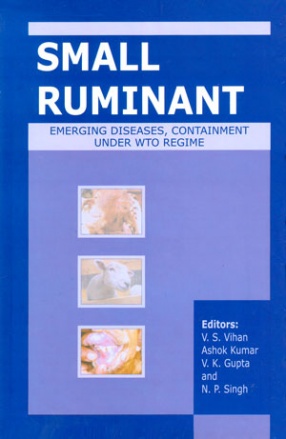
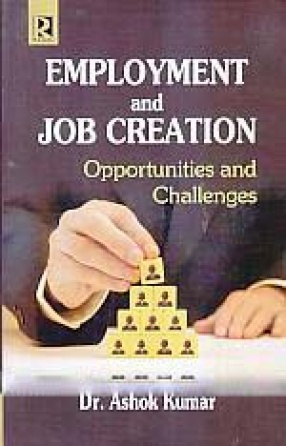


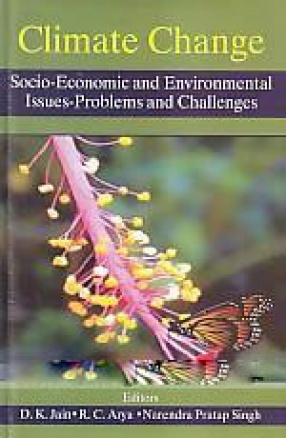
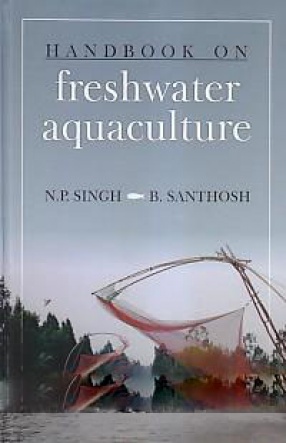
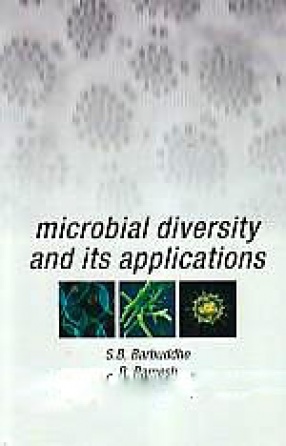
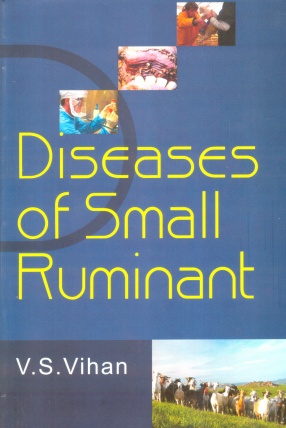
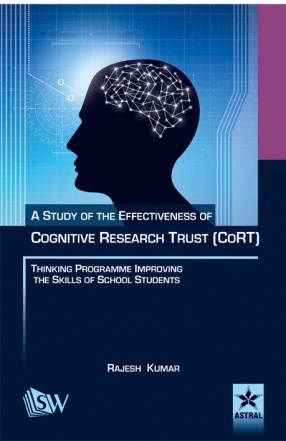
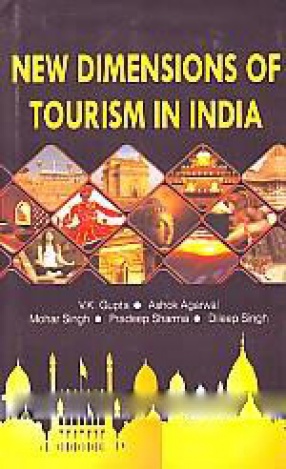

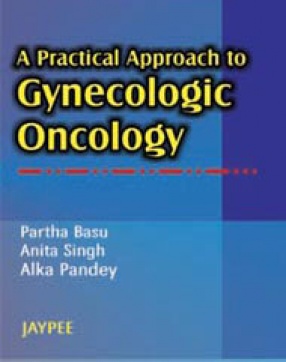
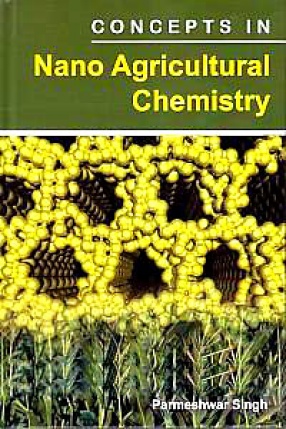
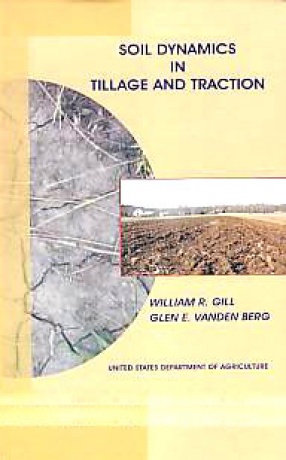
There are no reviews yet.